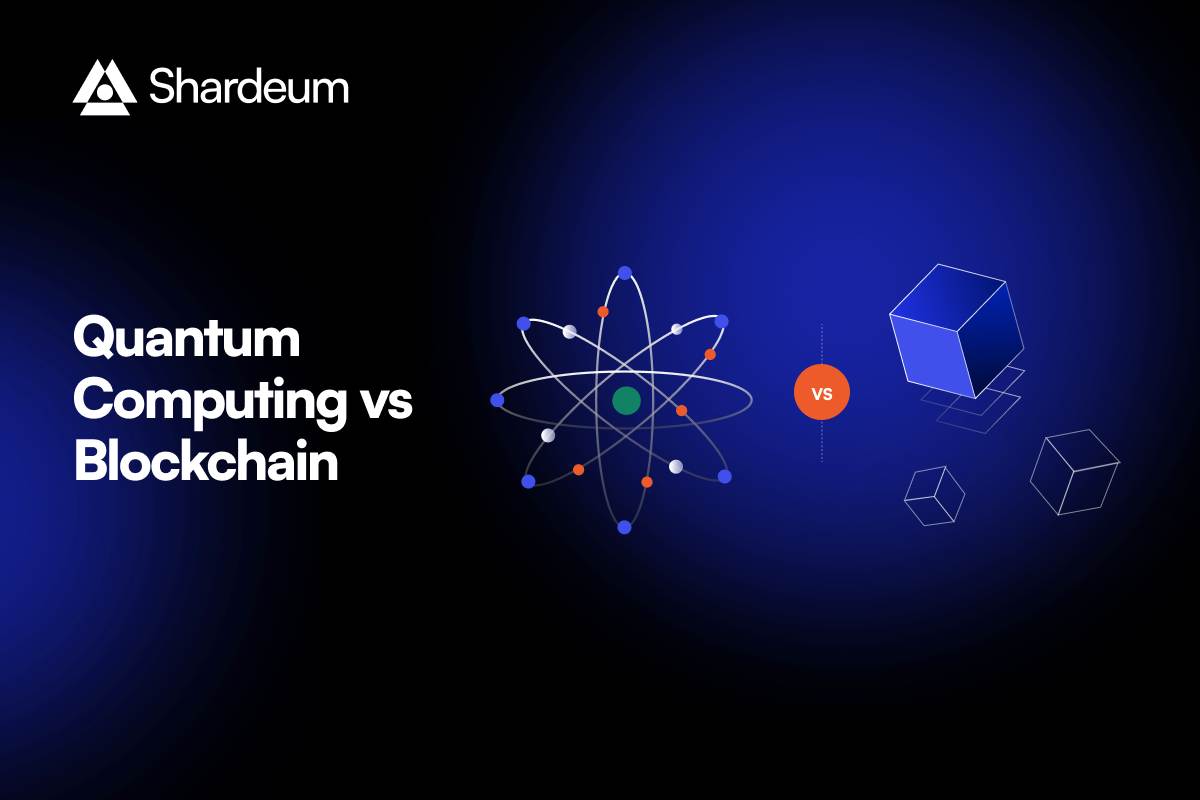The Impact of Quantum Computing on Blockchain

- The Rise of Quantum Computing Technology
- Understanding the Basics of Blockchain Technology
- The Potential Threat of Quantum Computing to Blockchain Security
- Exploring the Benefits of Quantum Computing in Blockchain Applications
- Challenges and Opportunities in Integrating Quantum Computing with Blockchain
- The Future of Blockchain Technology in the Age of Quantum Computing
The Rise of Quantum Computing Technology
Quantum computing technology is advancing at a rapid pace, revolutionizing the way we process information and solve complex problems. This innovative technology relies on the principles of quantum mechanics to perform operations that are exponentially faster than traditional computers. As a result, quantum computing has the potential to significantly impact various industries, including blockchain technology.
In the realm of blockchain, quantum computing poses both challenges and opportunities. On one hand, the advanced computing power of quantum computers could potentially threaten the security of blockchain networks. The cryptographic algorithms that currently secure blockchain transactions may be vulnerable to attacks from quantum computers, putting sensitive data at risk.
However, on the other hand, quantum computing also offers the opportunity to enhance blockchain technology. Quantum computers have the ability to handle vast amounts of data and perform complex calculations in a fraction of the time it would take traditional computers. This could lead to faster transaction processing, increased scalability, and improved overall efficiency of blockchain networks.
As quantum computing continues to rise in prominence, it is essential for blockchain developers to stay ahead of the curve. By exploring ways to integrate quantum-resistant algorithms and security measures into blockchain technology, we can ensure that blockchain networks remain secure and reliable in the era of quantum computing. Embracing the potential of quantum computing technology can pave the way for a new era of innovation and advancement in the world of blockchain.
Understanding the Basics of Blockchain Technology
Blockchain technology is a decentralized, distributed ledger system used to record transactions across multiple computers securely. It operates on a peer-to-peer network where each block in the chain contains a cryptographic hash of the previous block, transaction data, and a timestamp. This technology is best known for its application in cryptocurrencies like Bitcoin.
One of the key features of blockchain is its immutability, meaning that once a block is added to the chain, it cannot be altered or deleted without affecting all subsequent blocks. This makes it highly secure and resistant to fraud or tampering. Transactions are verified by network participants through a process called consensus, ensuring transparency and trust among users.
Blockchain technology has the potential to revolutionize various industries beyond finance, including supply chain management, healthcare, real estate, and more. Its decentralized nature eliminates the need for intermediaries, reducing costs and increasing efficiency. Smart contracts, self-executing contracts with the terms of the agreement directly written into code, further enhance the capabilities of blockchain technology.
As quantum computing continues to advance, there are concerns about its potential impact on the security of blockchain networks. Quantum computers have the ability to solve complex mathematical problems much faster than traditional computers, posing a threat to the cryptographic algorithms used to secure blockchain transactions.
In response to this threat, researchers are exploring quantum-resistant cryptographic techniques to protect blockchain networks from quantum attacks. These techniques involve using algorithms that are secure against both classical and quantum computers, ensuring the continued security of blockchain technology in the age of quantum computing. It is crucial for the blockchain community to stay ahead of these developments to safeguard the integrity and reliability of blockchain networks.
The Potential Threat of Quantum Computing to Blockchain Security
One of the most significant concerns regarding the impact of quantum computing on blockchain technology is the potential threat it poses to blockchain security. As quantum computers continue to advance in their capabilities, they may have the ability to break the cryptographic algorithms that currently secure blockchain networks.
Traditional blockchain networks rely on cryptographic techniques such as SHA-256 and Elliptic Curve Digital Signature Algorithm (ECDSA) to secure transactions and ensure the integrity of the ledger. However, quantum computers have the potential to solve complex mathematical problems at a much faster rate than classical computers, which could render these cryptographic algorithms obsolete.
Quantum computers could theoretically break the cryptographic keys used to secure blockchain transactions, allowing malicious actors to alter transaction data, steal funds, or launch denial-of-service attacks on the network. This poses a significant threat to the immutability and security of blockchain networks, which rely on cryptographic security to function effectively.
Exploring the Benefits of Quantum Computing in Blockchain Applications
Exploring the advantages of quantum computing in blockchain applications reveals the potential for significant advancements in security, scalability, and efficiency. Quantum computing has the ability to solve complex cryptographic problems much faster than classical computers, which is crucial for enhancing the security of blockchain networks. By leveraging quantum computing, blockchain systems can implement more robust encryption algorithms that are resistant to attacks from quantum computers.
Furthermore, quantum computing can improve the scalability of blockchain networks by enabling faster consensus mechanisms and transaction processing. This means that blockchain platforms can handle a higher volume of transactions without compromising on speed or efficiency. The combination of quantum computing and blockchain technology has the potential to revolutionize various industries by providing a more secure and efficient way to conduct transactions and store data.
Challenges and Opportunities in Integrating Quantum Computing with Blockchain
Integrating quantum computing with blockchain poses both challenges and opportunities in the realm of digital transactions and security. The potential of quantum computing to significantly enhance the speed and efficiency of blockchain networks is a promising prospect. However, this integration also raises concerns about the vulnerability of current blockchain systems to quantum attacks.
- One of the main challenges in merging quantum computing with blockchain is the need to develop quantum-resistant cryptographic algorithms to safeguard the integrity of transactions. This requires extensive research and development to ensure that blockchain networks remain secure in the face of quantum threats.
- Another key challenge is the scalability of quantum computing systems. As blockchain networks continue to grow in size and complexity, quantum computers must be able to handle the increased computational demands to maintain the efficiency of transactions.
- On the other hand, the integration of quantum computing with blockchain opens up new opportunities for enhancing data privacy and authentication. Quantum cryptography can provide an added layer of security to blockchain transactions, ensuring that sensitive information remains protected from malicious actors.
- Furthermore, the use of quantum computing in blockchain technology can lead to the development of more advanced consensus mechanisms, enabling faster validation of transactions and improved network scalability.
In conclusion, while there are challenges to overcome in integrating quantum computing with blockchain, the potential benefits far outweigh the risks. By addressing these challenges and seizing the opportunities presented by quantum technology, the future of blockchain networks can be revolutionized in terms of speed, security, and efficiency.
The Future of Blockchain Technology in the Age of Quantum Computing
The future of blockchain technology in the era of quantum computing is a topic of significant interest and debate among experts in the field. As quantum computing continues to advance rapidly, there are concerns about how it will impact the security and privacy of blockchain networks. While blockchain has been touted as a secure and decentralized technology, the emergence of quantum computing poses new challenges that need to be addressed.
One of the main concerns is that quantum computers will be able to break the cryptographic algorithms that currently secure blockchain networks. This could potentially allow malicious actors to alter transactions, steal cryptocurrencies, or disrupt the entire blockchain network. As a result, researchers are actively exploring new encryption methods that are resistant to attacks from quantum computers.
Despite these challenges, there is also optimism about the potential of quantum computing to enhance blockchain technology. For example, quantum computers could significantly increase the speed and efficiency of blockchain networks, making transactions faster and reducing transaction costs. Additionally, quantum computing could enable new applications and use cases for blockchain, such as supply chain management and secure voting systems.



